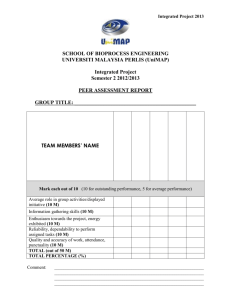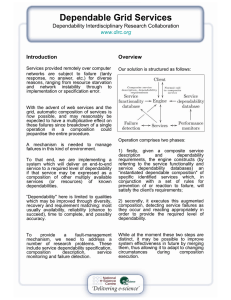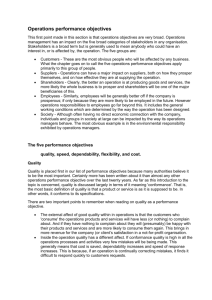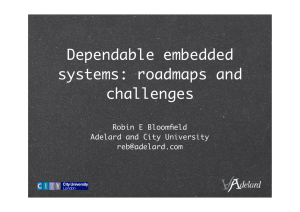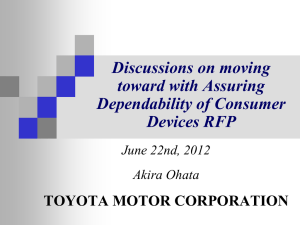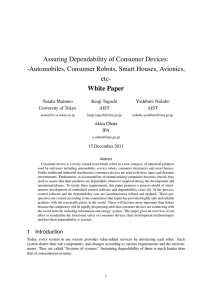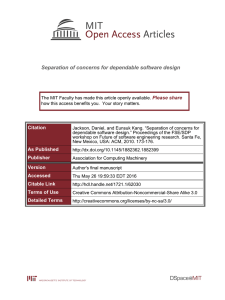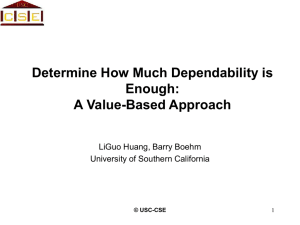Assuring Dependability of Consumer Devices The
advertisement
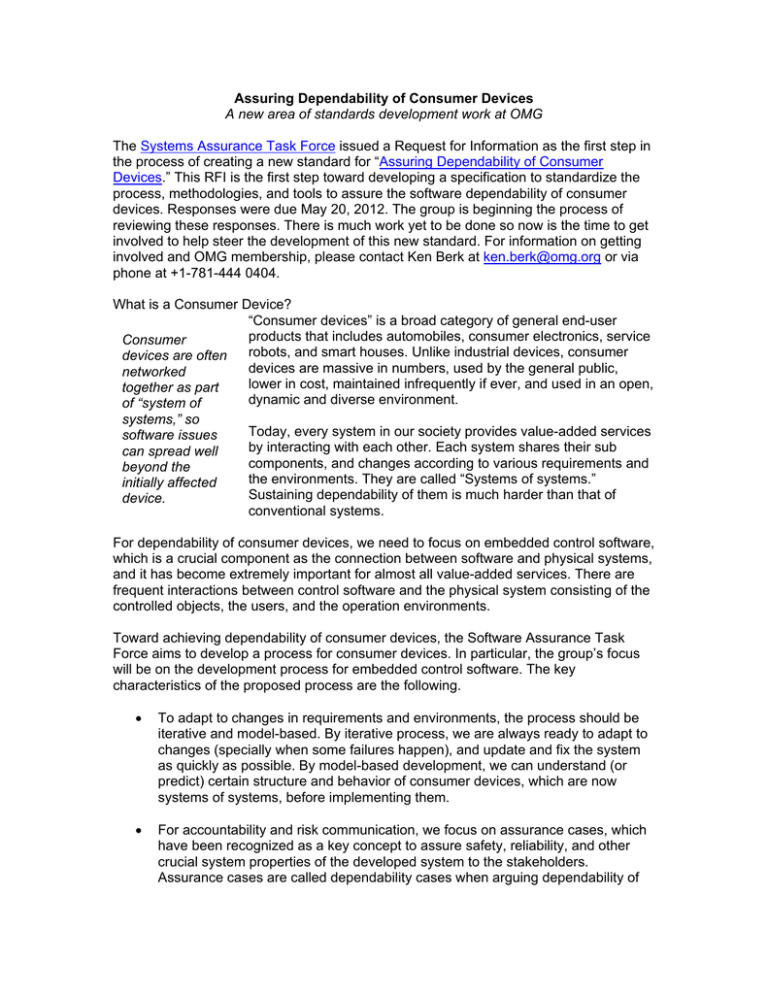
Assuring Dependability of Consumer Devices A new area of standards development work at OMG The Systems Assurance Task Force issued a Request for Information as the first step in the process of creating a new standard for “Assuring Dependability of Consumer Devices.” This RFI is the first step toward developing a specification to standardize the process, methodologies, and tools to assure the software dependability of consumer devices. Responses were due May 20, 2012. The group is beginning the process of reviewing these responses. There is much work yet to be done so now is the time to get involved to help steer the development of this new standard. For information on getting involved and OMG membership, please contact Ken Berk at ken.berk@omg.org or via phone at +1-781-444 0404. What is a Consumer Device? “Consumer devices” is a broad category of general end-user products that includes automobiles, consumer electronics, service Consumer robots, and smart houses. Unlike industrial devices, consumer devices are often devices are massive in numbers, used by the general public, networked lower in cost, maintained infrequently if ever, and used in an open, together as part dynamic and diverse environment. of “system of systems,” so Today, every system in our society provides value-added services software issues by interacting with each other. Each system shares their sub can spread well components, and changes according to various requirements and beyond the the environments. They are called “Systems of systems.” initially affected Sustaining dependability of them is much harder than that of device. conventional systems. For dependability of consumer devices, we need to focus on embedded control software, which is a crucial component as the connection between software and physical systems, and it has become extremely important for almost all value-added services. There are frequent interactions between control software and the physical system consisting of the controlled objects, the users, and the operation environments. Toward achieving dependability of consumer devices, the Software Assurance Task Force aims to develop a process for consumer devices. In particular, the group’s focus will be on the development process for embedded control software. The key characteristics of the proposed process are the following. • To adapt to changes in requirements and environments, the process should be iterative and model-based. By iterative process, we are always ready to adapt to changes (specially when some failures happen), and update and fix the system as quickly as possible. By model-based development, we can understand (or predict) certain structure and behavior of consumer devices, which are now systems of systems, before implementing them. • For accountability and risk communication, we focus on assurance cases, which have been recognized as a key concept to assure safety, reliability, and other crucial system properties of the developed system to the stakeholders. Assurance cases are called dependability cases when arguing dependability of systems. Safety cases (assurance cases for safety) have been applied to ISO 26262 for automotive functional safety of electric and electronic systems. As far as we know, rapid iterations with continuous improvements approach for consumer devices are not mentioned in ISO 26262 and other standards for safety in depth. A supporting whitepaper is posted at http://www.omg.org/cgi-bin/doc?sysa/2011-12-08.

